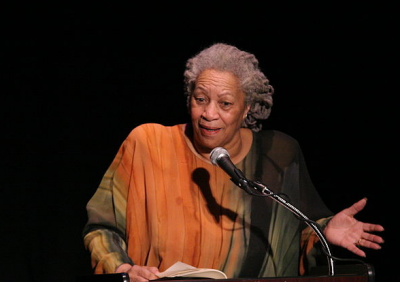
Toni Morrison was an acclaimed author whose literary works animated the experiences of black women wit power, humanity, humour, and poetry. Her compelling narratives and fresh vivid language transformed the world of countless readers and writers. Let’s look back at this academician’s 1993 acceptance speech for the nobel prize in literature.
In 1993, acclaimed African-American writer Toni Morrison created history by becoming the first black recipient of the Nobel Prize in Literature. She dedicated her life to crafting narratives that highlighted the experiences and realities of black women in America. The visionary force and poetic inputs that embellished her landmark speech on the occasion not only paid homage to her racial and cultural identity but also presented a critique of the use and misuse of language.
Fiction: educational or merely entertaining
Morisson began her speech by declaring that fiction is more than just entertainment. She expanded on her hypothesis by claiming that the oral traditions of storytelling bear evidence of the fact that narratives have always been a principal way we “acquire, hold and digest information”. Recalling how the most memorable sentence of one’s childhood is the phrase, ‘once upon a time she narrated a fable of the black blind clairvoyant woman and the dead bird to elaborate on how all the citizens of a nation are collectively responsible for creating an equal world that does not use language to discriminate, oppress or violate the minorities.
The vitality of language
She believed that the vitality of language lies in its attempt to describe what is actual, imagined and possible in the lives of its speakers, readers and writers. Referring back to Abraham Lincoln’s Gettysburg Address, she said ” language can never live up to life once and for all. Nor should it. Language can never “pin down” slavery, genocide, war. Nor should it year for the arrogance to be able to do so. Its force, its felicity is in its reach toward the ineffable… unmolested language surges toward knowledge, not its destruction…Word-work is sublime…it is generative; it makes meaning that secures our difference, our human difference – the way in which we are like no other life. We die. That may the meaning of life. But we do be language. That may be the measure of our lives.” (excerpt from the speech)
Key takeaways from the speech
1. We acquire, hold and digest information via narrative.
2. It is our responsibility to wield language to create a more equal world.
3. Language is the measure of our lives
DID YOU KNOW?
1. Toni Morisson was born Chloe Ardelia Wofford, but she changed it after she converted to catholicism.
2. Morisson was a college professor and an editor at Random House, before becoming a celebrated author.
3. Morisson was 39 years old when her debut novel The Bluest Eyes was published.
4. Morrison’s 1987 novel Beloved won a Pulitzer Prize.
5. Morrison was honoured with the Presidential Medal of Freedom in 2012 by then-President Barack Obama.
6. The novelist’s birthday February 18 is celebrated as Toni Morrison Day in her home-state Ohio.
Picture Credit : Google




